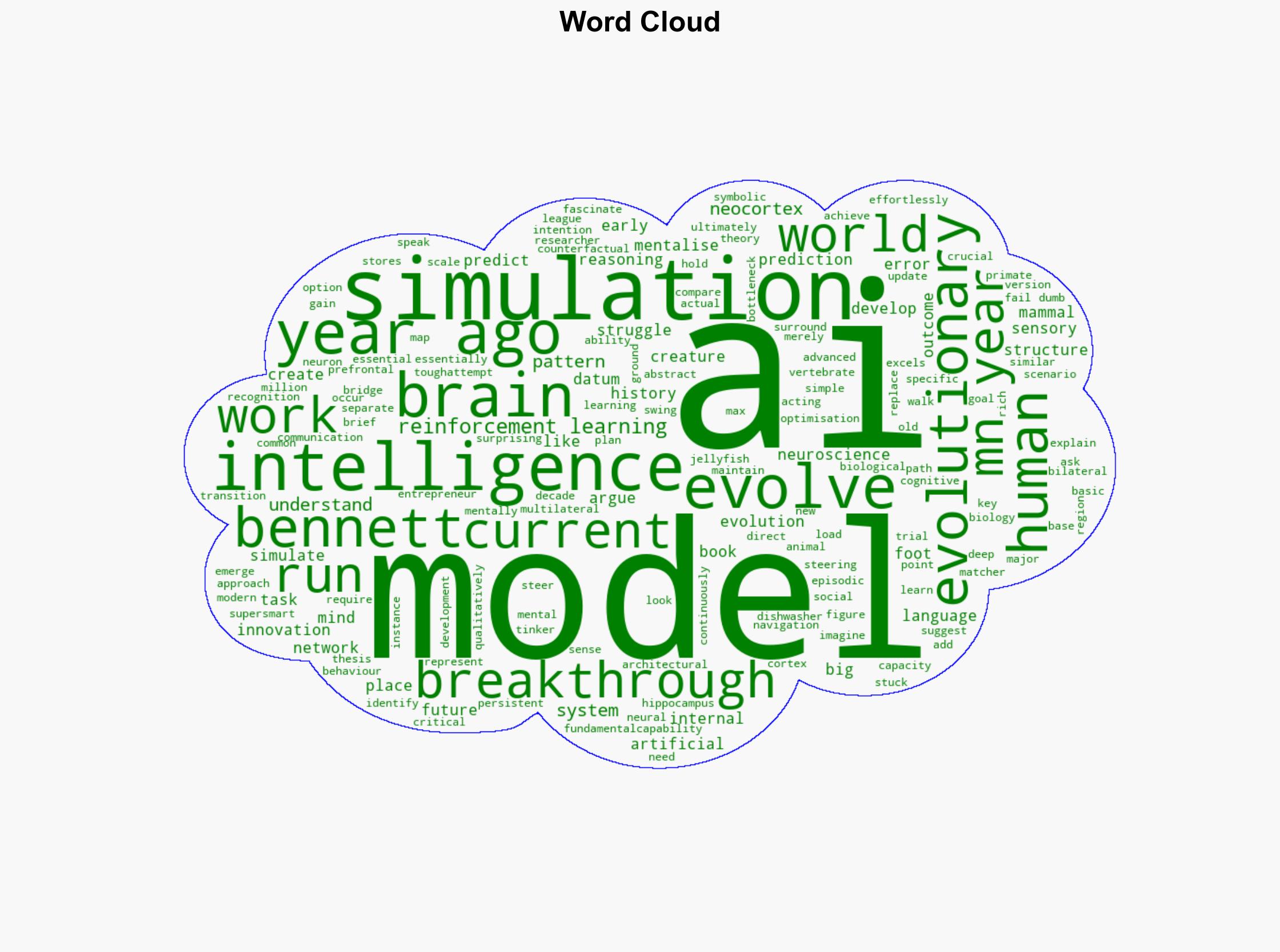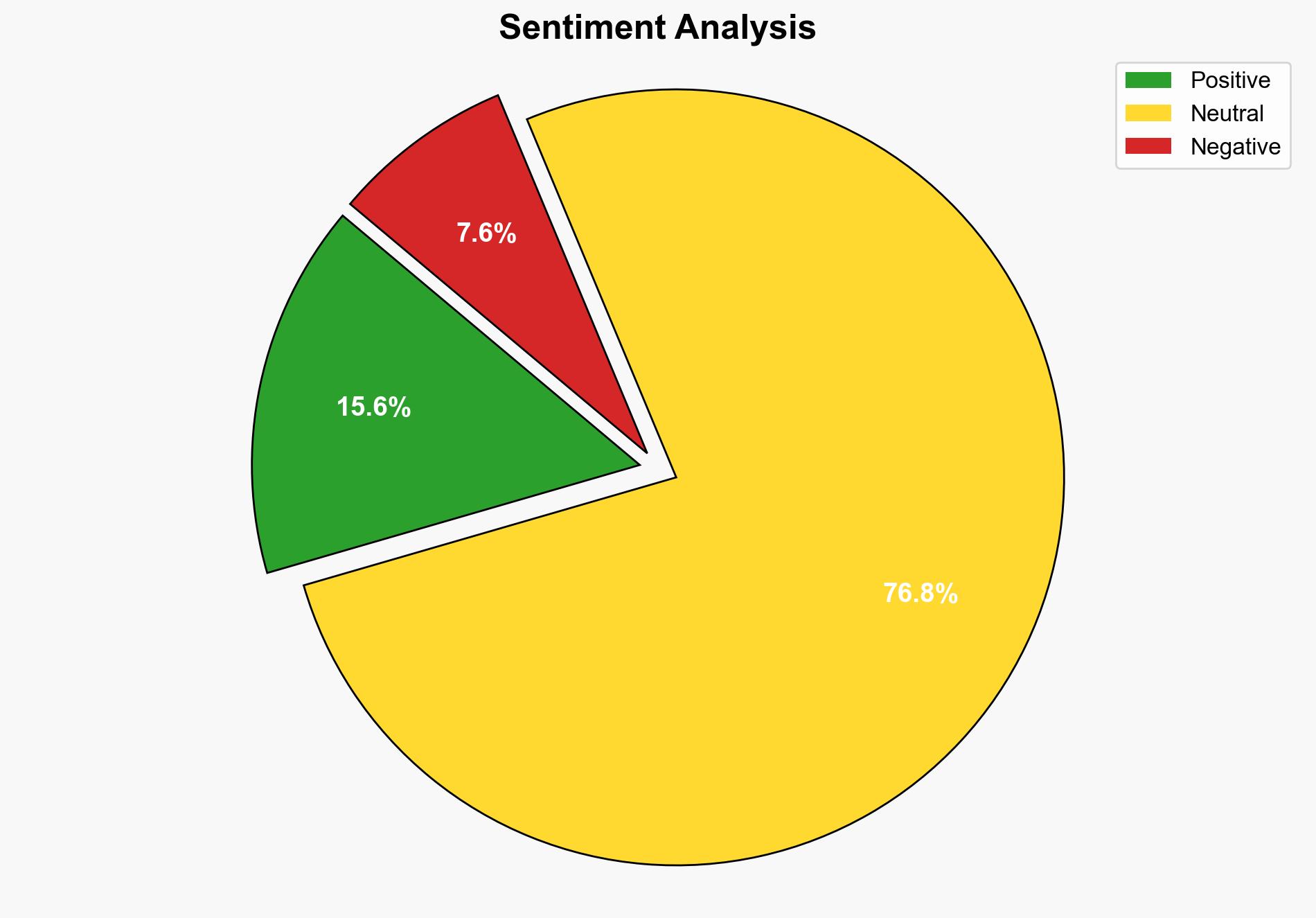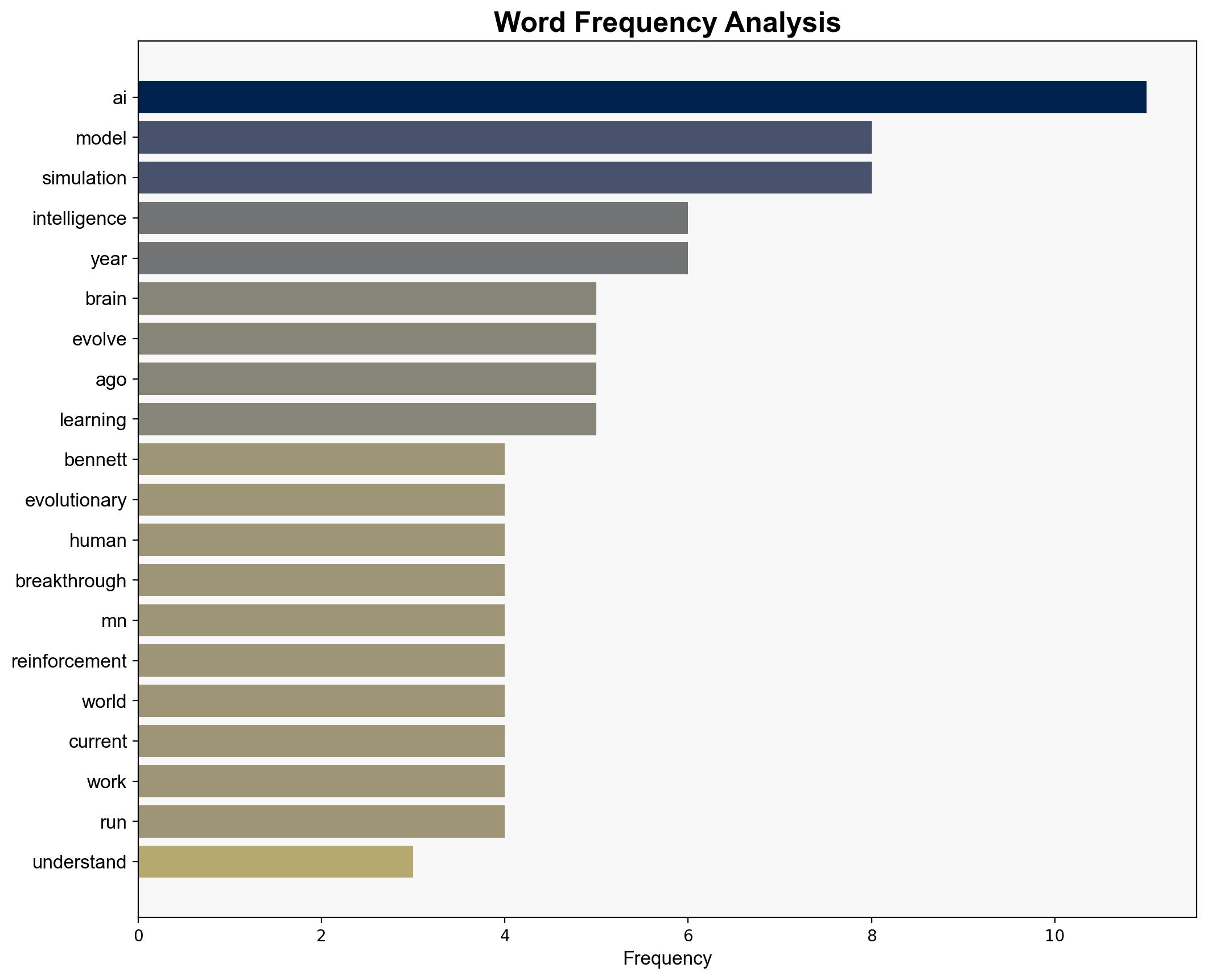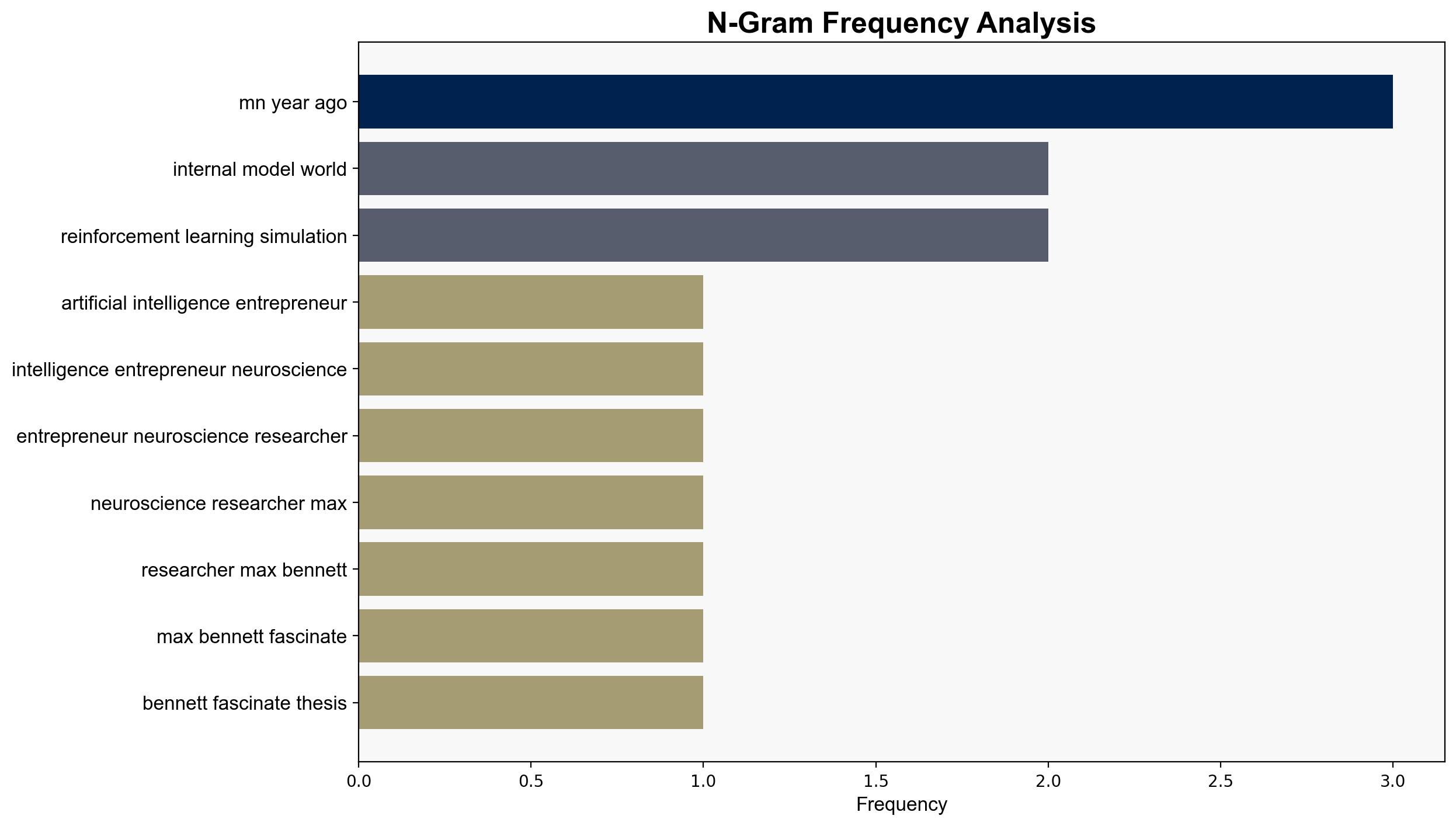AI cant get common sense – The Times of India
Published on: 2025-10-25
Intelligence Report: AI cant get common sense – The Times of India
1. BLUF (Bottom Line Up Front)
Current artificial intelligence systems lack the capability for common sense reasoning due to architectural limitations. The most supported hypothesis is that AI requires a fundamental architectural innovation akin to evolutionary developments in biological intelligence. Confidence Level: Moderate. Recommended action is to invest in interdisciplinary research bridging neuroscience and AI to explore novel architectures.
2. Competing Hypotheses
1. **Hypothesis A**: AI’s inability to perform common sense reasoning is due to a lack of architectural innovation similar to evolutionary milestones in biological intelligence.
2. **Hypothesis B**: AI can achieve common sense reasoning through incremental improvements in existing neural network architectures and reinforcement learning techniques.
Using ACH 2.0, Hypothesis A is better supported as the source emphasizes the need for new brain-like structures, whereas current AI systems struggle with tasks requiring mental models and social intelligence, which are not addressed by mere scaling of existing technologies.
3. Key Assumptions and Red Flags
– **Assumptions**: Hypothesis A assumes that biological evolution provides a direct blueprint for AI development. Hypothesis B assumes that current AI methods can be scaled effectively to achieve common sense.
– **Red Flags**: Over-reliance on biological analogies may overlook unique computational approaches. The assumption that scaling current methods will suffice lacks empirical support.
– **Blind Spots**: Potential breakthroughs in quantum computing or alternative AI paradigms are not considered.
4. Implications and Strategic Risks
– **Economic**: Failure to innovate AI architectures could stall technological progress and economic growth in AI-dependent sectors.
– **Cyber**: AI systems lacking common sense may be vulnerable to manipulation and exploitation.
– **Geopolitical**: Nations investing in novel AI architectures may gain strategic advantages, leading to shifts in global power dynamics.
– **Psychological**: Public trust in AI could diminish if systems continue to fail in tasks requiring common sense.
5. Recommendations and Outlook
- Invest in interdisciplinary research combining neuroscience, evolutionary biology, and AI to explore new architectural paradigms.
- Encourage collaboration between academic institutions and industry to accelerate innovation.
- Best Case: Breakthrough in AI architecture leads to systems capable of common sense reasoning within a decade.
- Worst Case: Continued reliance on current methods results in stagnation and increased vulnerability.
- Most Likely: Gradual progress with partial improvements in AI capabilities, but no major breakthroughs without architectural innovation.
6. Key Individuals and Entities
– Max Bennett: Neuroscience researcher and AI entrepreneur advocating for architectural innovation in AI.
7. Thematic Tags
artificial intelligence, neuroscience, technological innovation, strategic advantage





